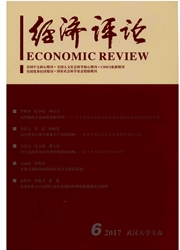

 中文摘要:
中文摘要:
本文采用中国东中西部地区面板数据研究了中国转型时期不同制度水平下金融发展对收入分配的影响如何受到社会资本水平的制约。实证研究发现,社会资本构成不完善制度的有效替代,社会资本水平的提高有利于缩小中国居民收入差距。正规金融和非正规金融的发展不利于收入分配的改善,但社会资本与非正规金融的交互效应降低了非正规金融对收入分配的不利影响,并且制度越不完善,这种效应所起的作用越强。因此,应该注重培育与维护社会资本的健康发展,深化金融发展,规范非正规金融发展。
 英文摘要:
英文摘要:
This paper uses panel data at provincial level to investigate the relationship between social capital and financial development and their combined influence on income distribution under different levels of system. Empirical analysis shows that social capital is an effective alternative to imperfect system in terms of narrowing income gap in China. Both formal and informal finance widen income gap in China, but social capital, together with informal finance, can significantly narrow the income gap among residents. The more imperfect the system,the stronger the effect. In order to inprove income distribution we should make efforts to foster social capital, facilitate financial development, and regulate informal finance.
 同期刊论文项目
同期刊论文项目
 同项目期刊论文
同项目期刊论文
 期刊信息
期刊信息
